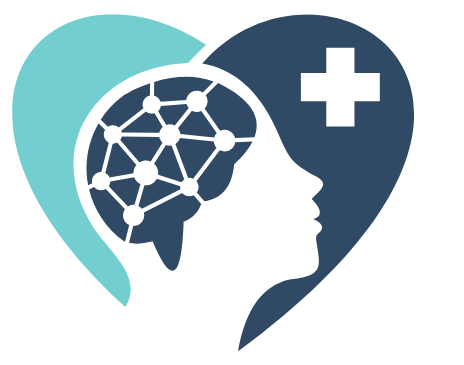Anxiety is an exaggerated response of our nervous system that can arise due to chronic fear, trauma, or stress. Under normal circumstances when our body must respond to danger, stress hormones are released, like cortisol and adrenaline, which prepare us for running from a threat, or fighting it off. This is known as the flight-flight response. The fight-flight response is controlled by very ancient biological systems in the body, including an area of the brainstem called the fear center. Normally, our bodies relax once the threat is gone, and our heart rate, blood pressure, and breathing rate go back to normal. However, when we are exposed to chronic stress, our body forgets how to shut down the flight-flight response. When this happens, a person can develop an anxiety disorder, such as generalized anxiety disorder, obsessive compulsive disorder, phobia, or panic disorder.
Approximately 18% of adults in the U.S. have an anxiety disorder, and 8% of children and teens. According to the National College Health Association, 63% of college freshmen report experiencing problems with anxiety. In addition to emotional distress, anxiety can cause problems at home, school, work, and in relationships.
Symptoms of Anxiety
- Restlessness, nervousness, feeling on edge
- Sweaty palms, shaking
- Feeling jumpy and startling easily
- Worrying often about a variety of concerns
- Racing thoughts that don’t slow down
- Stomach aches, headaches
- Muscle pains, chest pains
- Problems concentrating
- Sleep problems, fatigue
- Feeling a sense of impending danger, panic or doom
- Panic attacks
Causes of Anxiety & Diagnosis
Anxiety disorders are often caused by genetics, trauma, and stress. Some underlying health issues can increase anxiety, including heart disease, hyperthyroidism, and polycystic ovary syndrome. If you are concerned about anxiety symptoms, talk to your doctor first to rule out any possible medical causes to your symptoms.
Studies show that anxiety disorders run in families. Other factors that can lead to anxiety disorders include experiencing loss, abuse, violence, or major illness. If you are concerned about anxiety symptoms, please make an appointment with a doctor or a therapist who can assess your symptoms and screen for other conditions that often occur with anxiety, such as depression. Your provider will refer to the Diagnostic and Statistical Manual of Mental Disorders (DSM-5), published by the American Psychiatric Association, for other criteria to determine applicable diagnoses.
Treatments for Anxiety
The treatments that have been found most helpful for treating anxiety disorders include psychotherapy, an medication. The most effective psychotherapy treatments include cognitive behavioral therapy (CBT), and exposure and response therapy. There are three main types of medication that are used to treat anxiety disorders, including selective serotonin reuptake inhibitors (SSRIs) such as citalopram (Celxa), fluoxetine (Prozac), escitalopram (Lexapro), and sertraline (Zoloft). Other types of medications that are sometimes prescribed for anxiety disorders include antihistamines, like hydroxyzine, and beta-blockers, such as propranolol. Stronger anticonvulsant and sedative medications can be prescribed for severe anxiety symptoms, including gabapentin and alprazolam (Xanax), but these carry risk of dependence and should not be used for long periods of time.
Other holistic treatments that are helpful for anxiety include relaxation and balanced nutrition, limiting caffeine and alcohol, yoga and meditation, regular exercise, spirituality, as well as nature and animal therapies. Some of the factors that help people recover from anxiety include their physical health, social support, self-esteem, positive thinking skills, and sense of purpose. To learn more, visit the Anxiety and Depression Association of America.

